Showing 25 of 751 items meeting your criteria.
| | Type | Category | Supplier | |
|---|
| |
 | The SARS-CoV-2 virus which causes COVID-19 is comprised of 10 open reading frames (ORFs). Many of these create structural proteins and nonstructural proteins, but several of them generate unique proteins named after the ORF they are encoded by. Inhibiting some of these SARS-CoV-2 proteins which contribute to viral immune evasion could lead to faster clearing of SARS-CoV-2 infection by improving the hosts antiviral systems. ProScis catalogue has antibodies and recombinant proteins to many of the SARS-CoV-2 ORF accessory proteins. |
Documents | COVID-19 | ProSci | |
 | BeCytes Biotechnologies supports life science researchers developing preclinical studies, aimed to improve human health, by providing access to primary human liver cells. |
Documents | Primary Cells | BeCytes Biotechnologies | |
 | LeadGene specialises in the design and development of high-quality antibodies & proteins. View their product catalogue here. |
Documents | Catalogue | LeadGene Biomedical | |
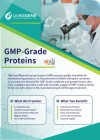 | The Good Manufacturing Practice (GMP) ensures quality standards for manufacturing products. As the potential of cellular therapies continues to increase, the demand for GMP-Grade cytokines and growth factors also rises. Leadgene provides a safe and traceable supply of GMP-Grade proteins for ex vivo cell culture in the manufacturing of cell therapy treatment. |
Documents | Proteins | LeadGene Biomedical | |
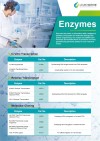 | Discover the power of innovation with LeadGenes portfolio of enzymes for molecular biology and protein engineering. LeadGenes expert & skilled team develops and manufactures all products in-house, guaranteeing premium quality for research needs. |
Documents | Molecular Biology | LeadGene Biomedical | |
 | Cytokines for cell therapy diagram flyer |
Documents | Cytokines | LeadGene Biomedical | |
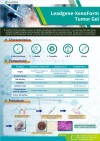 | XenoForm Tumour Gel is made from synthetic biological materials, which can provide an extracellular matrix microenvironment without the risk of zoonotic pathogens or toxins. It has high activity, stability, biocompatibility, and safety, and can be operated at room temperature. It is also easy to inject and allows self-adjustment of gel density. This product can be used in tumour growth experiments with various mouse cancer models. |
Documents | Cancer | LeadGene Biomedical | |
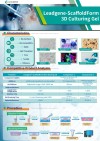 | The 3D cell culture hydrogel system simulates the microenvironment of human tissue using synthetic biological materials. It is stable, adjustable, easy to operate, and has high biological compatibility, which can be applied in 3D cell culture, tumour formation experiments, tumour angiogenesis and invasion study. |
Documents | Cell Culture | LeadGene Biomedical | |
 | BeCytes Biotechnologies has created a platform capable of coordinating the donation of human tissues and cells for biomedical research purposes. It encompasses strong collaborations with national and international procurement centres, biobanks and hospitals, allowing them to provide researchers with a wide range of tissue samples. |
Documents | Service | BeCytes Biotechnologies | |
 | CHP Applications - Fibrotic Conditions |
Documents | Peptides | 3Helix | |
 | CHP Applications - Skeletal Disease and Development |
Documents | Peptides | 3Helix | |
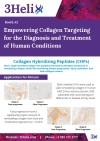 | Empowering Collagen Targeting for the Diagnosis and Treatment of Human Conditions |
Documents | Peptides | 3Helix | |
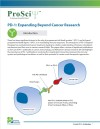 | There has been significant interest in the role of programmed cell death protein 1 (PD-1) and its ligand programmed death-ligand 1 (PD-L1) in modulating immune responses. The emergence of PD-1-targeted therapies has revolutionized cancer treatment, leading to a better understanding of immune checkpoint mechanisms and their uses in various research fields. This paper offers a review of significant publications on the use of PD-1 antibodies in cancer, immunology, and Alzheimers disease research. We will highlight the importance of PD-1 antibodies in resolving the complicated interactions between the immune system and pathological conditions as well as their potential to create novel therapeutic approaches. |
Documents | Antibodies | ProSci | |
 | Making recombinant proteins for the sustainable scientist. |
Documents | Recombinant Proteins | Future Fields | |
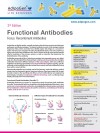 | Focus: Recombinant Antibodies |
Documents | Antibodies | AdipoGen Life Sciences | |
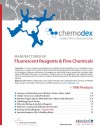 | Chemodex is an expert in the synthesis of fluorescent substances derived from fluorophores such as coumarin, fluorescein, rhodamine and pyrene. |
Documents | Biochemicals | Chemodex | |
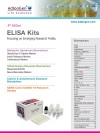 | Focusing on Emerging Research Fields: Metabolic Syndrome Biomarkers, Inflammatory Diseases Biomarkers, Cancer & Autoimmune Diseases Biomarkers, SARS-CoV-2/COVID-19 Research Assays |
Documents | ELISA | AdipoGen Life Sciences | |
 | Coronaviruses (CoVs) – SARS-CoV & SARS-CoV-2 [2019-nCoV] research |
Documents | COVID-19 | AdipoGen Life Sciences | |
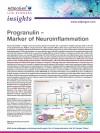 | Progranulin (PGRN) is a highly conserved secreted cysteine-rich protein that is expressed in multiple cell types, both in the CNS and in peripheral tissues. |
Documents | Neuroscience | AdipoGen Life Sciences | |
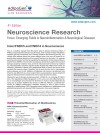 | Focus: Emerging Fields in Neuroinflammation & Neurological Diseases |
Documents | Neuroscience | AdipoGen Life Sciences | |
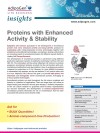 | AdipoGen Life Sciences specialises in developing recombinant proteins that show enhanced activity and long half-life, produced in mammalian cells. Using proprietary in-house technologies together with established and published technologies, they engineer, develop and produce an innovative panel of recombinant proteins for different research fields including Cell Therapy Research. |
Documents | Recombinant Proteins | AdipoGen Life Sciences | |
 | Ligands & receptors |
Documents | Immunology | AdipoGen Life Sciences | |
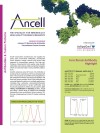 | Ancell Corporation manufactures and supplies monoclonal antibodies, recombinant fusion proteins, isotype controls and second step reagents for immunology research. |
Documents | Immunology | Ancell | |
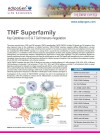 | The tumour necrosis factor (TNF) and TNF receptor (TNFR) superfamilies (TNFSF/TNFRSF) include 20 ligands and 30 receptors that play important roles in the modulation of cellular functions. |
Documents | Immunology | AdipoGen Life Sciences | |
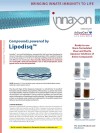 | Lipodisq™ are novel lipid/polymer nanoparticles that have been developed as mimics of naturally-occurring high-density lipoproteins (HDL). |
Documents | Biochemicals | Innaxon | |